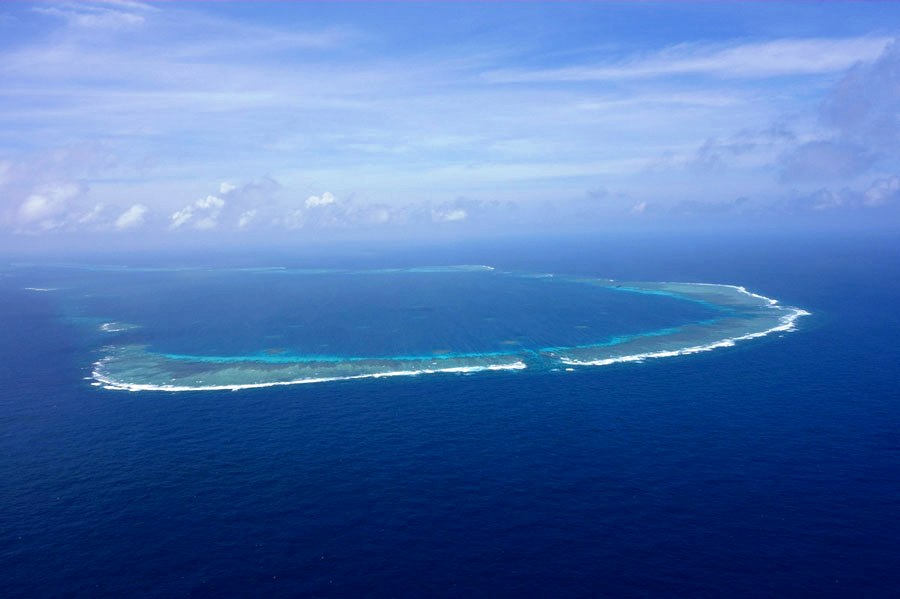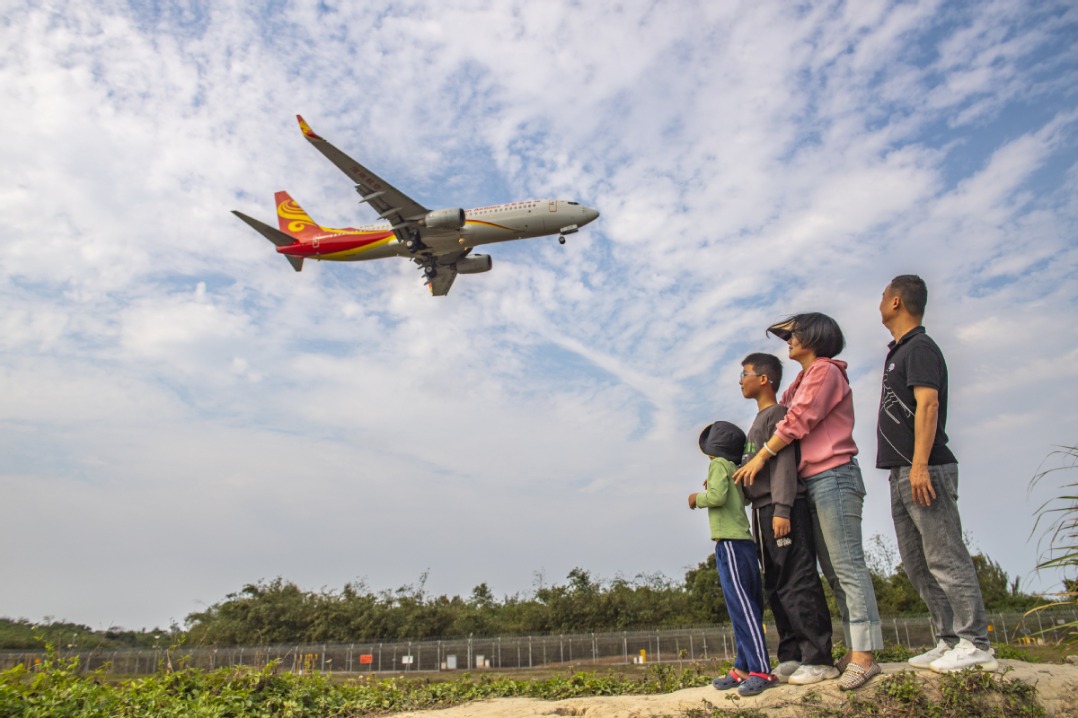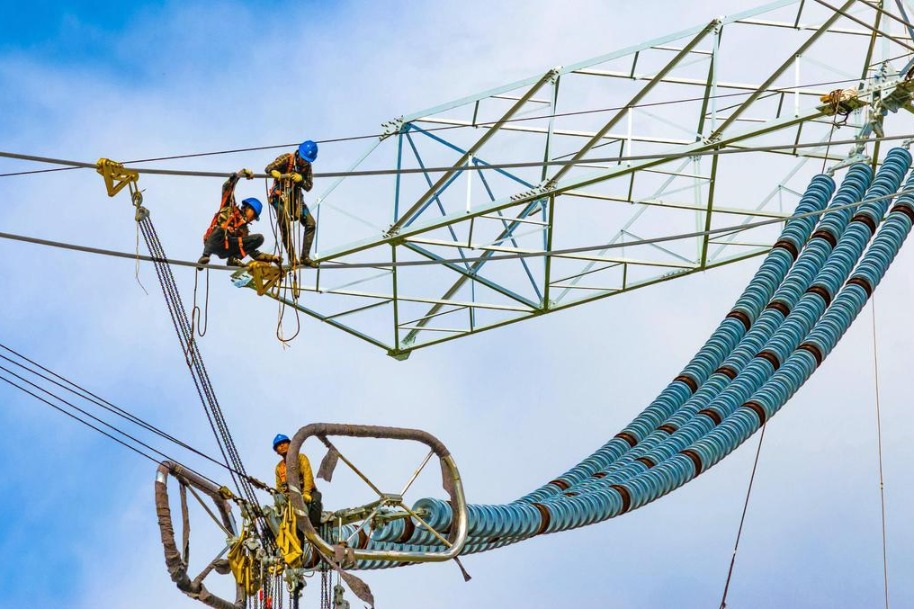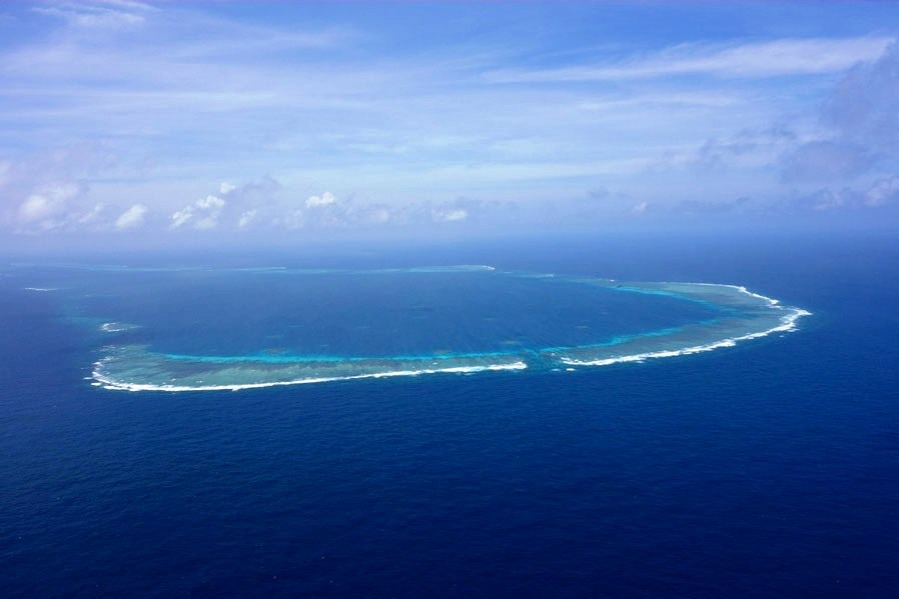Manila's cognitive warfare won't succeed


In the past year, the Philippines, under the guidance of, and in collaboration with, the United States, has been trying to turn the South China Sea into a battleground by, among other things, spreading lies about China. By doing so, the Philippines seeks to justify its illegal, provocative actions in the South China Sea, especially around maritime features belonging to China.
One such incident occurred in April when the Philippine Coast Guard's BRP Teresa Magbanua (MRRV-9701) intruded into the waters near China's Xianbin Reef. Manila tried to justify the move by claiming it was monitoring China's "illegal island-building activities".
However, the reality is that the Philippine vessel remained unlawfully anchored in the area in an attempt to establish the Philippines' de facto presence in the waters. Before the Aug 19 collision between a Philippine vessel and a Chinese law enforcement ship, Philippine Coast Guard spokesperson Commodore Jay Tarriela accused China of deploying large Coast Guard ships and "maritime militia" in and around the Xianbin Reef, claiming that such actions undermined regional stability and escalated tensions. Tarriela claimed the Philippine Coast Guard's presence in the area was to "defend sovereignty" and combat "illegal fishing and environmental degradation".
Another recent example is the Philippines' illegal activities near Huangyan Island. On Aug 8, Manila claimed that two Chinese military aircraft conducted "dangerous maneuvers" over the shoal and dropped flares near a Philippine plane carrying out a "maritime security operation" in what it claimed was Philippine waters. In reality, China was conducting routine military exercises at the time, and the Philippine Air Force's NC-212 aircraft, ignoring repeated warnings from the Chinese side, intruded into Chinese airspace over the Huangyan Island in a bid to interfere in the exercises.
The Philippines has consistently spread falsehoods about China's South China Sea claims. For example, the Philippine media often add the phrase, "China claims almost all of the South China Sea", when reporting on China's maritime claims.
But China has clearly articulated its acclaims in its July 12, 2016, statement on sovereignty and maritime territorial rights in the South China Sea. China claims four main rights, the most important being its sovereignty over the South China Sea islands and historical rights in South China Sea. The Philippines' persistent distortion and smearing of China is aimed at soiling its international image.
To cover up its false information campaign and lead the international community astray, the Philippines accuses China of spreading "fake news". This tactic not only creates confusion in the international community but also helps Manila portray itself as a "victim" forced to "defend" its maritime territories. But Manila's misinformation campaign cannot change reality.
First, China's sovereignty over the maritime features in the South China Sea is supported by historical and legal evidence. China's insistence on resolving disputes through direct negotiations between the involved parties is the right approach to address the issue. The Philippines will not succeed in denying China's sovereignty using the so-called South China Sea arbitration ruling, as maritime sovereignty is not subject to the United Nations Convention on the Law of the Sea.
Moreover, China issued an exclusionary declaration way back in 2006, saying that it does not accept the compulsory procedures under the UNCLOS on maritime delimitation, historic bays or titles. China's approach to resolving territorial disputes with the majority of its neighbors through friendly negotiations has proven practical and effective. As such, the Philippines' utter disregard for China's sage advice and its attempt to trigger a legal "fight" against China only reveal its ulterior motives.
Second, the US is primarily responsible for the escalating disputes in the South China Sea. It has roped in the Philippines to do its bidding, in order to advance its geopolitical interests in the region. While Manila has been repeatedly denying Washington's involvement, the reality is that US government agencies, think tanks and media have been perpetuating the false narrative on the South China Sea, which it aims to contain, because it perceives China as its greatest geopolitical rival.
By keeping the South China Sea issue alive, the US can justify strengthening its military presence in the Philippines and maintaining its dominance in the Asia-Pacific region with the help of its allies like Japan and the Philippines. The establishment of new US military bases on Luzon Island of the Philippines, ostensibly for humanitarian purposes, is, in fact, aimed at bolstering the first island chain and preparing for a potential confrontation with China over the Taiwan question.
Third, if tensions escalate, the Philippines will be the biggest loser. Stopping its provocative moves and returning to cooperation are in the best interests of the Philippines. Over the past year, despite helping take forward the US' strategy to contain China, the Philippines has gained no substantial benefits in terms of its maritime claims. Should the Philippines miscalculate and provoke a conflict, it will suffer the most.
As neighbors and developing countries, Beijing and Manila both would benefit by working together to overcome common challenges such as de-globalization and climate change. But with many of the Philippines' political elites being coerced or persuaded to serve US interests, it is doubtful whether anyone among the Philippine leadership would understand what is truly good for their country.
For example, in mid-July, the Philippine government announced plans to expand the airport on Zhongye Island, which it illegally occupies. The New York Times' Chinese edition then fabricated a story to support this, saying that given China's growing presence in the South China Sea, the Philippines has been forced to upgrade its "dilapidated" military facilities. This new wave of cognitive warfare raises a vital question: Is the Philippines determined to push its luck further, potentially turning Zhongye Island into the next flashpoint after Ren'ai Reef and Xianbin Reef?
Li Kaisheng is vice-president of the Shanghai Institutes for International Studies; and Zhang Qiyue is an assistant research fellow at the Institute for Global Governance Studies of the SIIS. The views don't necessarily reflect those of China Daily.
If you have a specific expertise, or would like to share your thought about our stories, then send us your writings at opinion@chinadaily.com.cn, and comment@chinadaily.com.cn.


































